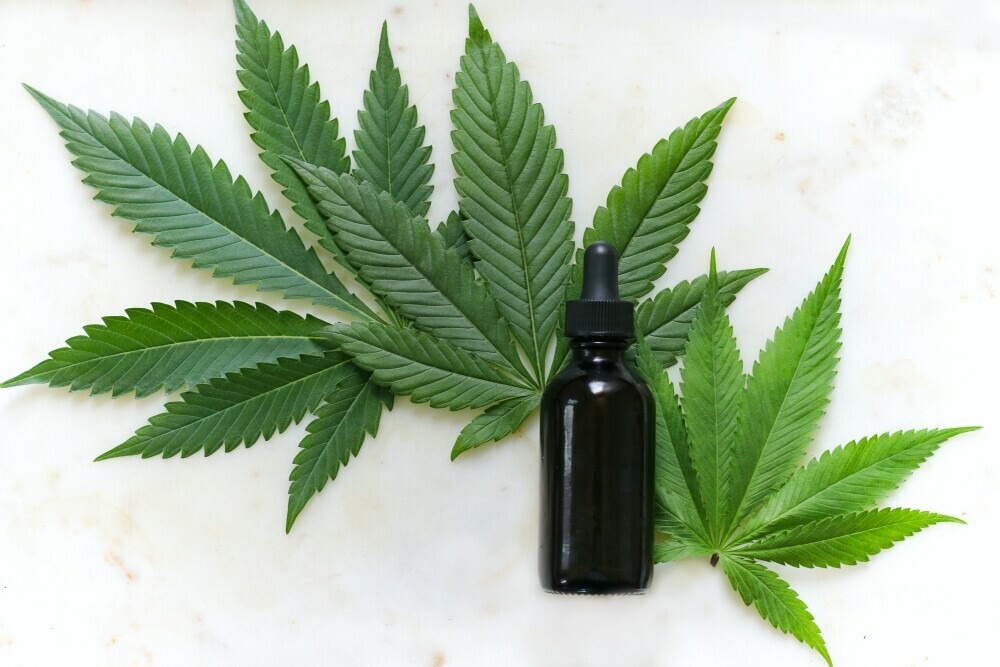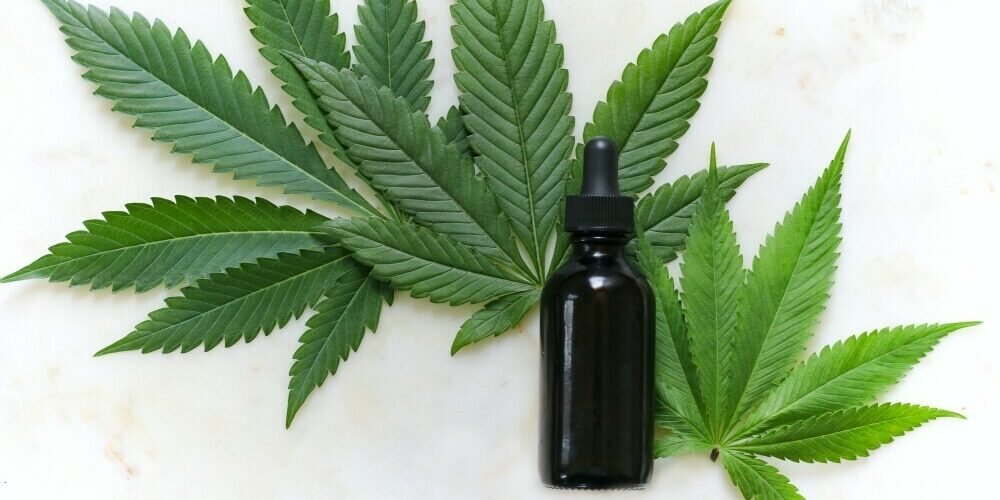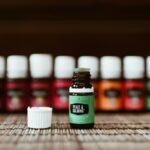
Introduction to Organic CBD Oil: More Than Just Being Natural
In a world where wellness takes center stage, the demand for natural and holistic remedies has surged. Among the diverse array of wellness products, organic CBD oil has garnered significant attention. The term “CBD” has become a household name, but what sets organic CBD oil apart? Let’s delve into the depths of this herbal elixir and explore what is in organic CBD oil that makes it a standout in the realm of wellness.
What Organic CBD Oil Is
CBD, short for cannabidiol, is a compound derived from the cannabis plant. Organic CBD oil is crafted from organically grown hemp plants, ensuring that the cultivation process avoids synthetic pesticides, herbicides, and other chemicals. This dedication to organic farming aims to preserve the purity of the CBD extract, offering a product free from potentially harmful contaminants.
Preliminary Explanation of the Difference Between Organic and Non-organic CBD Oil
The stark contrast between organic and non-organic CBD oil lies in the cultivation practices and the subsequent extraction methods. While both types may contain CBD, the organic variant boasts a commitment to natural farming techniques. Non-organic CBD oil, on the other hand, may involve the use of synthetic chemicals during cultivation, potentially compromising the final product’s overall purity.
Consumers choosing organic CBD oil prioritize the absence of synthetic additives, seeking a more holistic approach to well-being. This commitment to natural processes extends beyond the final product, encompassing the entire supply chain, from seed to bottle.
Emerging Trends in CBD Oil Usage
As the acceptance of CBD oil grows, so does the diversity of its applications. Beyond the traditional tinctures and capsules, CBD-infused products are permeating various industries. From skincare and beauty products to edibles and beverages, the versatility of CBD oil is fostering a wave of innovation.
One notable trend is the incorporation of CBD into daily routines as a proactive wellness measure. Many individuals are turning to organic CBD oil not just to address specific ailments but also as a part of their overall health and self-care regimen. As research progresses, new potential applications for CBD are continually emerging, expanding its presence in the wellness landscape.
Organic CBD oil transcends being merely a natural product; it embodies a commitment to purity and a holistic approach to well-being. Understanding the distinctions between organic and non-organic CBD oil empowers consumers to make informed choices for their health. As emerging trends continue to shape the CBD landscape, one thing remains clear—organic CBD oil is here to stay, offering a natural path to balance and vitality in the modern world.
Cultivating Wellness: From Cannabis Plant to CBD Oil – Unveiling the Organic Farming Process
Details about How Organic CBD Oil is Derived
The journey from the cannabis plant to organic CBD oil is a fascinating exploration of nature’s potential. Organic CBD oil is extracted from hemp plants cultivated using organic farming practices. The process begins with the careful selection of hemp seeds, ensuring they are free from genetic modifications and sourced from reputable suppliers.
Organic cultivation mandates that the plants are grown without the use of synthetic pesticides, herbicides, or fertilizers. This commitment to natural methods extends to the extraction process, where organic CBD oil is typically obtained through CO2 extraction or other solvent-free methods. This meticulous approach preserves the purity of the CBD extract, maintaining its therapeutic properties without the potential contamination of harmful chemicals.
Legal and Ethical Considerations Involved in its Farming
Navigating the legal landscape of hemp cultivation and CBD extraction requires adherence to a complex web of regulations. In many regions, the legality of hemp cultivation and CBD production is contingent on the THC (tetrahydrocannabinol) content—the psychoactive compound in cannabis. Organic CBD oil, by definition, contains only trace amounts of THC, adhering to legal limits and ensuring a non-intoxicating product.
Ethical considerations in organic farming extend beyond legality. Cultivators committed to organic practices prioritize sustainability, fair labor practices, and environmental stewardship. By embracing ethical standards, the organic CBD industry contributes to a healthier planet and supports communities involved in the cultivation process.
The Importance of Soil Quality and Absence of Chemicals in Organic Farming
At the heart of organic farming is a deep appreciation for soil health. The soil serves as the foundation for the hemp plant’s growth, and its quality directly impacts the nutritional profile of the resulting CBD oil. Organic farmers prioritize soil enrichment through natural methods, relying on compost, cover crops, and crop rotation to maintain a nutrient-rich environment.
The absence of synthetic chemicals in organic farming is pivotal. Chemical pesticides and fertilizers not only have the potential to contaminate the final product but also contribute to soil degradation and harm local ecosystems. Organic CBD oil, cultivated in chemical-free environments, reflects a commitment to sustainability and the long-term health of the land.
The journey from the cannabis plant to organic CBD oil is a testament to the meticulous care and ethical considerations embedded in the organic farming process. As consumers increasingly seek natural and sustainable solutions for their well-being, understanding the path from cultivation to extraction becomes paramount. Organic CBD oil not only offers a holistic approach to health but also stands as a symbol of responsible and ethical farming practices, paving the way for a greener and healthier future.
Unveiling Nature’s Recipe: Decoding the Ingredient List in Organic CBD Oil
Explaining the Common Components Found in Organic CBD Oil
As the popularity of organic CBD oil continues to soar, consumers are becoming more discerning about the products they choose. A crucial aspect of making an informed decision is understanding the ingredient list on the label. Organic CBD oil, in its purest form, comprises a handful of key components. The primary ingredient, of course, is cannabidiol (CBD), the therapeutic compound derived from the cannabis plant. Additionally, organic carrier oils, such as hemp seed oil or coconut oil, are often used to enhance the bioavailability of CBD.
The Role Each Ingredient Plays
- Cannabidiol (CBD): The star of the show, CBD is renowned for its potential therapeutic benefits, including anti-inflammatory, analgesic, and anxiolytic properties. It interacts with the endocannabinoid system in the body, helping to maintain balance and promote overall well-being.
- Carrier Oils: Organic carrier oils play a crucial role in CBD oil formulations. They not only serve as a medium for CBD absorption but also contribute their own health benefits. Hemp seed oil, for example, is rich in omega-3 and omega-6 fatty acids, offering additional nutritional support. Coconut oil, on the other hand, is prized for its antimicrobial properties.
What Additives or Fillers to Avoid When Choosing an Organic CBD Oil
While organic CBD oil is celebrated for its natural composition, some products may contain additives or fillers that compromise its purity. It’s essential for consumers to be vigilant and avoid products with unnecessary ingredients that could dilute the therapeutic effects or introduce potential allergens. Common additives to steer clear of include:
- Artificial Flavorings and Colorings: Natural CBD oil should have a distinct earthy taste, and any addition of artificial flavors may indicate an attempt to mask the natural profile or cut corners in production.
- Preservatives: Some CBD oils may include preservatives to extend shelf life. While this might seem practical, it’s unnecessary in high-quality organic CBD oil, as natural antioxidants in the carrier oils can serve a similar purpose.
- Allergens: Check for common allergens like gluten, soy, or dairy. Quality organic CBD oil should be free from these potential irritants, ensuring a product suitable for a broad range of consumers.
Decoding the ingredient list in organic CBD oil is a key step in making an informed and health-conscious choice. Understanding the roles each component plays and being aware of additives to avoid empowers consumers to select a product that aligns with their wellness goals. As the market continues to evolve, the emphasis on transparency and purity in organic CBD oil remains steadfast, offering a natural and holistic approach to health and vitality.
Nurturing Nature: Spotting the Difference Between Organic and Non-Organic CBD Oil
The Benefits of Choosing Organic CBD Oil Over Non-Organic
The booming popularity of CBD oil has led to a proliferation of products on the market, presenting consumers with choices that extend beyond CBD concentrations and flavor profiles. One fundamental decision lies in the source of the CBD: organic or non-organic. Opting for organic CBD oil brings a myriad of benefits. Firstly, organic farming practices exclude the use of synthetic pesticides and fertilizers, ensuring that the final product is free from potentially harmful residues. This commitment to purity extends to the extraction process, resulting in a cleaner, more natural CBD oil. Additionally, organic CBD oil often contains a higher concentration of beneficial compounds, as the plants are cultivated in nutrient-rich soil without the aid of artificial enhancers.
Impact of Organic Farming Practices on the Environment
The choice between organic and non-organic CBD oil extends beyond personal health to the health of the planet. Organic farming practices prioritize sustainability, eschewing synthetic chemicals that can harm the environment. By avoiding pesticides and promoting biodiversity, organic farms contribute to healthier ecosystems. Furthermore, these practices often involve crop rotation and composting, fostering soil fertility and long-term agricultural resilience. Choosing organic CBD oil becomes a conscious decision to support environmentally friendly practices and reduce the ecological footprint associated with conventional farming.
Comparative Price Differences and Perceived Value
One common consideration when choosing between organic and non-organic CBD oil is the price differential. Organic products often come with a higher price tag, reflecting the cost of adhering to stringent farming standards. While the initial investment may be greater, many consumers view this as a worthwhile expense for the numerous benefits offered by organic CBD oil. The perceived value lies not only in the product’s potential therapeutic effects but also in the assurance of a cleaner, more sustainable option. Additionally, as the demand for organic products continues to rise, economies of scale may gradually reduce the price gap, making organic CBD oil more accessible to a broader consumer base.
Spotting the difference between organic and non-organic CBD oil is a crucial step for consumers navigating the expansive CBD market. The benefits of choosing organic extend beyond personal wellness to encompass environmental sustainability. While the price difference may be a consideration, the perceived value of a cleaner, more natural product often outweighs the upfront cost. As the CBD landscape evolves, opting for organic CBD oil becomes not just a choice for individual well-being but a contribution to a healthier planet and a more sustainable future.
Navigating Wellness: Choosing High-Quality Organic CBD Oil with Confidence
Importance of 3rd Party Laboratory Testing for Purity and Concentration
In the expansive world of CBD oil, ensuring the quality and purity of the product you choose is paramount. One key indicator of a high-quality organic CBD oil is third-party laboratory testing. Reputable manufacturers understand the significance of transparency and willingly submit their products to independent testing. These tests verify the purity and concentration of the CBD, providing consumers with a clear understanding of what they are putting into their bodies. A comprehensive analysis also ensures that CBD oil is free from contaminants such as pesticides, heavy metals, and residual solvents. When making a choice, always look for products that proudly display their third-party test results, affirming their commitment to quality.
Why It’s Crucial to Understand the Source of the Hemp
The journey from seed to bottle is a critical factor in determining the quality of organic CBD oil. Understanding the source of the hemp used in the production process is key to making an informed choice. High-quality organic CBD oil starts with organically grown hemp. Organic cultivation practices exclude synthetic pesticides and fertilizers, ensuring that the final product remains free from potentially harmful residues. Additionally, the geographical location of hemp cultivation plays a role in the quality of the CBD oil. Hemp plants are bioaccumulators, meaning they absorb substances from the soil. Opting for CBD oil derived from hemp grown in nutrient-rich soil without contaminants ensures a purer and more potent end product.
Factors to Consider When Choosing the Right CBD Product for You
- CBD Concentration: The concentration of CBD in a product is a crucial factor in determining its potency. Consider your individual needs and start with a lower concentration if you are new to CBD, gradually increasing as needed.
- Extraction Method: The extraction method used can impact the final product. CO2 extraction is a widely regarded method that maintains the integrity of the CBD without the use of harmful solvents. Ensure the chosen product uses a safe and efficient extraction method.
- Full Spectrum vs. Isolate: Decide whether you prefer a full-spectrum CBD oil, which contains a range of cannabinoids and terpenes, or a CBD isolate, which is pure CBD. Each has its benefits, and the choice depends on personal preferences and desired effects.
- Additional Ingredients: Check for additional ingredients in the CBD oil. While some products may contain natural additives for flavor or additional health benefits, be cautious of unnecessary fillers or artificial components.
Choosing high-quality organic CBD oil is a nuanced process that involves careful consideration of testing, sourcing, and product characteristics. By prioritizing third-party laboratory testing, understanding the hemp source, and evaluating key factors in the product itself, consumers can navigate the CBD market with confidence, making informed choices that align with their wellness goals.
Conclusion: Elevating Your CBD Experience with Informed Choices
Embarking on the journey into the world of organic CBD oil is not merely a wellness pursuit; it’s a conscious decision to prioritize purity, sustainability, and informed self-care. As we’ve navigated through the intricacies of organic CBD oil—from its natural origins to the ethical farming practices that shape it, and the meticulous crafting of its ingredients—we’ve uncovered a tapestry of choices that extend beyond individual well-being.
The distinction between organic and non-organic CBD oil isn’t just about labels; it’s about embracing a holistic lifestyle that resonates with the principles of purity and environmental responsibility. Organic CBD oil isn’t just a natural product; it’s a commitment to a cleaner, greener, and more sustainable future.
From the fertile soils where hemp plants take root to the laboratories where third-party testing ensures uncompromised quality, the journey of organic CBD oil reflects a dedication to transparency and excellence. By understanding the nuances of CBD oil—from the role of each ingredient to the importance of cultivation practices and the impact on the environment—we empower ourselves to make choices that align with our values.
As we spot the difference between organic and non-organic CBD oil, we recognize the benefits that transcend personal health and extend to the well-being of our planet. The comparative price differences become investments in a cleaner, more sustainable option, a commitment to a future where quality and responsibility coexist.
In choosing high-quality organic CBD oil, we wield the power to elevate our wellness journey with confidence. Third-party testing becomes a badge of assurance, the source of hemp a testament to responsible farming, and the selection of the right product a personalized approach to achieving balance and vitality.
As emerging trends shape the CBD landscape and innovation continues to unfold, one thing remains clear—organic CBD oil is not just a trend; it’s a steadfast presence offering a natural path to well-being. So, as you embark on your CBD journey, armed with knowledge and a commitment to making informed choices, may you find balance, vitality, and a connection to nature in every drop of this herbal elixir.









